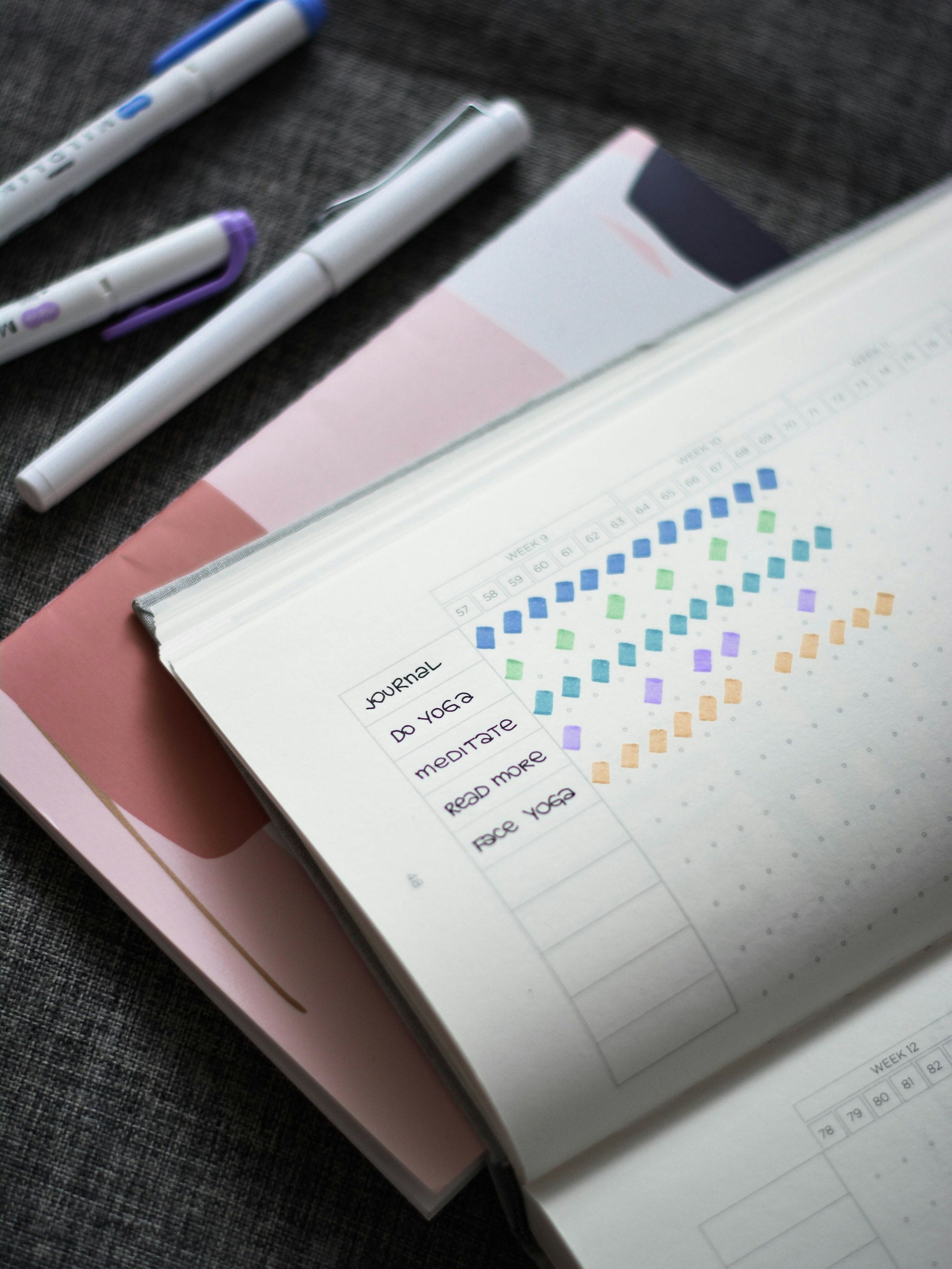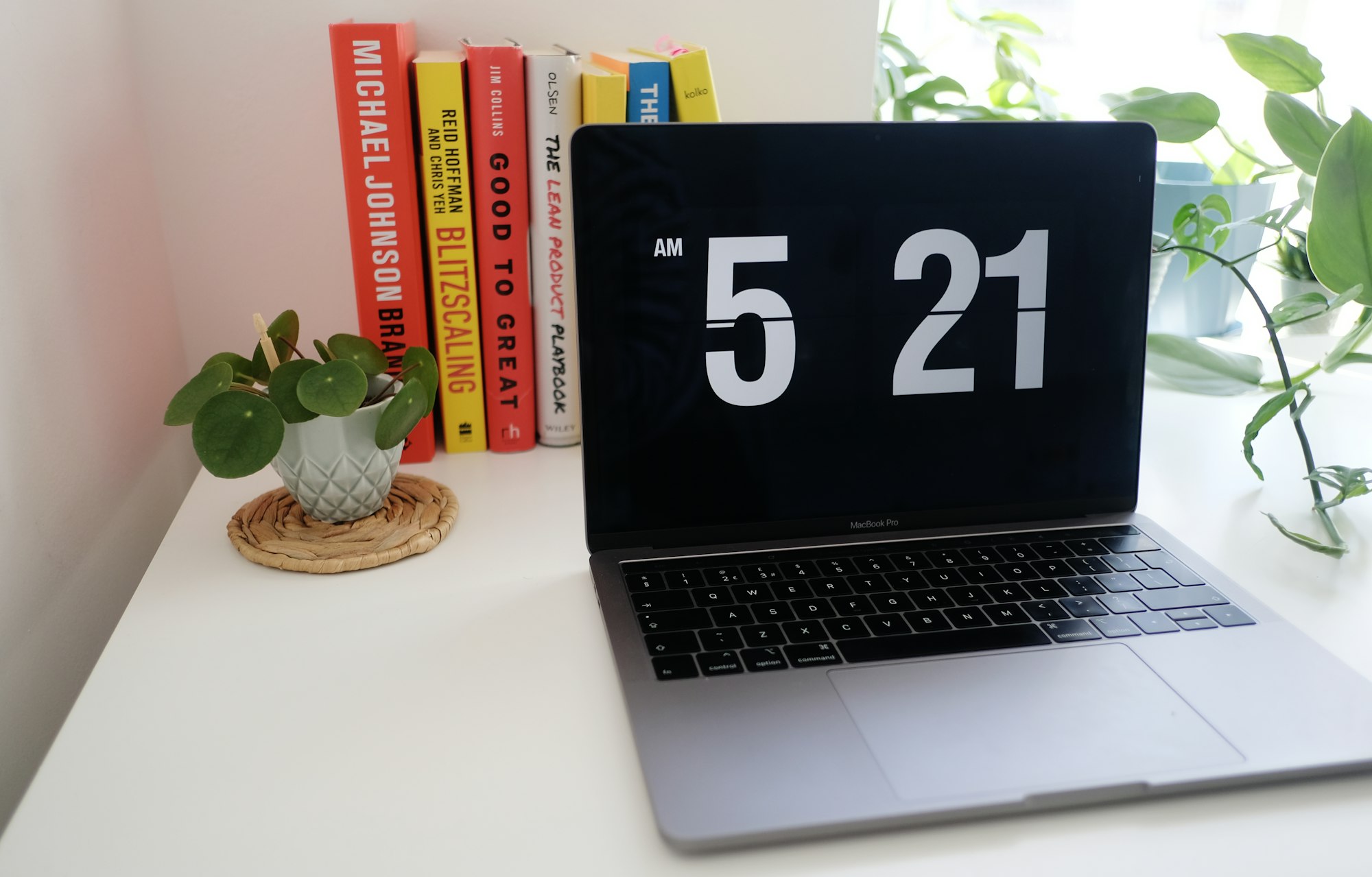A morning routine doesn't cause miracles, but it enables you to implement what you really care about
If you look online, in forums or books for ways to optimize yourself and increase productivity, you can't avoid one evergreen: the morning routine.
The morning routine is something that many want to sell you as the all-purpose tool for everything possible. According to the myth, you get up at 4:00 a.m. to meditate and exercise. Then you reflect with your diary for a while and read a book for another hour. Then you work on emails and at 09:00 or so the actual day starts. The promise is that the morning routine will make you healthier, more thoughtful, happier and more balanced. It will turn you into a better person.
In such a simplified way, and when only templates of morning routines of well-known personalities are adapted, it is of course nonsense.

The truth is that a morning routine is indeed an effective tool, however, its use also brings disadvantages that are most often not mentioned.
In this blog article, I want to describe the why, how and what of a good morning routine, but also the downsides I've encountered. I can say in advance that my morning routine has helped me get through even the most stressful phases with a better work-life balance and enabled me to not compromise my private goals with work goals.
Morning routines are really about managing willpower
The core of the Why of the morning routine lies in willpower, which is at its maximum in the morning and decreases rapidly throughout the day.
The "morning" in the morning routine means tackling the most important projects you have right first thing in the day when you are still full of energy.
The "routine" in the morning routine means that by putting the execution of the most important activities into a regular rhythm, you save willpower for the rest of the day. Because: every decision costs willpower and with routines, the decisions about what to do are already made. Many productivity-driven people know how to exploit this for themselves. Steve Jobs, for example, always chose the same turtle neck sweater for this very reason.

The important thing to understand here is that there can't be a perfect morning routine that can be copied by anyone, because it's all about getting the most important things done first thing in the day. And the definition of the most essential thing is very individual and can also change from time to time. For me, it changed three times in the past couple of years:
- In the very beginning, when I introduced my morning routine, losing weight was my main goal, so I started the day exercising.
- Then came a phase where I felt inner disarray, so I started my day by reflecting in a journal as well as reviewing my task management and notes.
- Right now, my priorities have shifted again. I found it a pain that my main job consumed 100% of my energy and time and I always postponed my private projects or put them on at times when I lacked the energy for them (creativity, art, and entrepreneurship). So I currently start my day with a timebox where I exclusively take care of my private projects. Currently, this usually means that I write blog articles for Deliberate Diligence.
The nice thing is that routines eventually feel like a set of components that can move around in the day, depending on the current situation.

Routines do not only have advantages. They can also make you feel like you're trapped in a cage.
One thing many books and articles about morning routines don't tell you is the emotional consequence of reaching a state where you reliably perform them regularly. I am occasionally burdened by the following thoughts:
- The desire for easier times: Performing the routine eventually feels like "overhead time." Or like gross time instead of net time. Sometimes I think back to simpler times in my youth or college days. I got by without notes and task management. Without routine and journal. Things ran on their own, as if in a flow. Why can't it be as simple today as it was then? The truth is that I didn't have that much to do back then. Today, with my routine, I'm easily twice or three times as effective as I was back then.
- Feeling like a robot: During phases when I perform my morning and evening routines particularly reliably, I feel like a robot after a while. The routines lead to me being productive for 14-15 of my 16 available hours. Which is good. But the lack of variety leaves the bad taste of being a robot. The solution is that the routines do not have to be executed 100% perfectly and day after day. If you don't feel like it, you just don't do it and do something else instead. In theory, at least.
- When your habit becomes a compulsion: The advantage of morning routines is that the "Don't Break The Chain" effect makes you highly motivated to perform the tasks regularly. And that is also a problem at the same time. Because it's not as simple as I described in the second bullet, you can skip a routine sometimes. Because the conscious omission of routine can feel like a latent pain of not doing something important. And that then torments you all day long. The solution here is to just practice it and get used to it. In any case, the omission of the routine must be a conscious decision that you make only once in a while, otherwise, you run the risk of breaking the routine.

My current routine has proven to be very effective for me.
For these reasons, I must honestly confess, I have only recently thought about whether I should not rather leave my morning and evening routine, to lead a life in which I surrender to the flow again.
I've also experimented with this, and the problem is that my flow leads me to read social media and news for an hour after I get up in the morning. And that's 7 hours of procrastination every week, which I could also use to create value instead. Now you might say that's okay then because that brings at least some pleasure into life. That's what it feels like at first. But in fact, the time I spend creating and being productive brings me more joy and satisfaction.
Looking back at 2022, I'm very proud of the fact that I managed an unprecedented workload without breaking my work-life balance (I had to temporarily shoulder the job of a colleague who was on sabbatical). And I firmly believe that I owe it to my routine to get this done, which was fortunately already an established habit in my life at that point. I believe that if I had only introduced the routine when I needed it, I wouldn't have been able to manage it, because introducing it also takes strength, which is in short supply during stressful periods.
I now have not only a morning routine, but an all-day routine.
As I said before, routines cannot be adapted like templates because they are highly individual. So please understand this rather as inspiration. Through my reasoning in the text, my motivation for the routine components should be clear by now.

The Morning:
- 06:00 Wakeup
- 06:00 - 06:30 Knowledge Reading: Reading non-fiction books to learn new things.
- 06:30 - 07:15 Private Projects: Arts, Writing, executing business ideas, etc.
- 07:15 - 08:30 Exercise incl. shower: I alternate running and weight training every day. When it comes to weight training, I'm lucky enough to have equipment for dumbbell and barbell exercises in my study.
- 08:30 - 09:00 Puffer for warm-up desk tasks and/or breakfast. Usually curd with oat flakes, nuts and berries.
- 09:00 - 11:30 Focus timebox for my "Eat the Frog" tasks, which is usually the most essential task of the day. I try to be completely offline and without distractions in this time box. Unfortunately, my job requires me to fill the block with meetings from time to time. In bad weeks, all days are filled with meetings from morning to night, and then of course this structure is obsolete. But hey, someday the beloved "standard days" will come again.

The Day:
- 11:30 - 13:00 Walk& Talk: I am going on my "long" walk. Preferably with music on one way and podcasts on the other way. However, I also often have to fill this slot with meetings (this is the talk part)
- 13:00 - 17:00 Meetings & Minor Tasks: In this slot, I'm more the manager than the creator. Besides the necessity of my role, this brings variety to my day and is also more social than the creator phase in the morning.

The Night:
- 17:00 - 18:00 Another Walk&Talk
- 18:00 - 19:00 Cooking & Dinner
- 19:00 - 20:00 Review of my Task Management & Note-taking system. Execution of my daily tasks. Review of the day's performance regarding my habit building. Processing my various inboxes (e.g. thoughts I captured while walking or meeting notes)
- 20:00 - 21:00 Leisure time
- 21:00 - 22:00 Reading
- 22:00 - 06:00 8hrs of sleep

I hope this article helps you to evaluate if, how and with which elements exactly a morning routine can help you.
Subscribe to my Deliberate Diligence blog for more ideas and thoughts on how to lead a deliberate diligence lifestyle:


Discussion